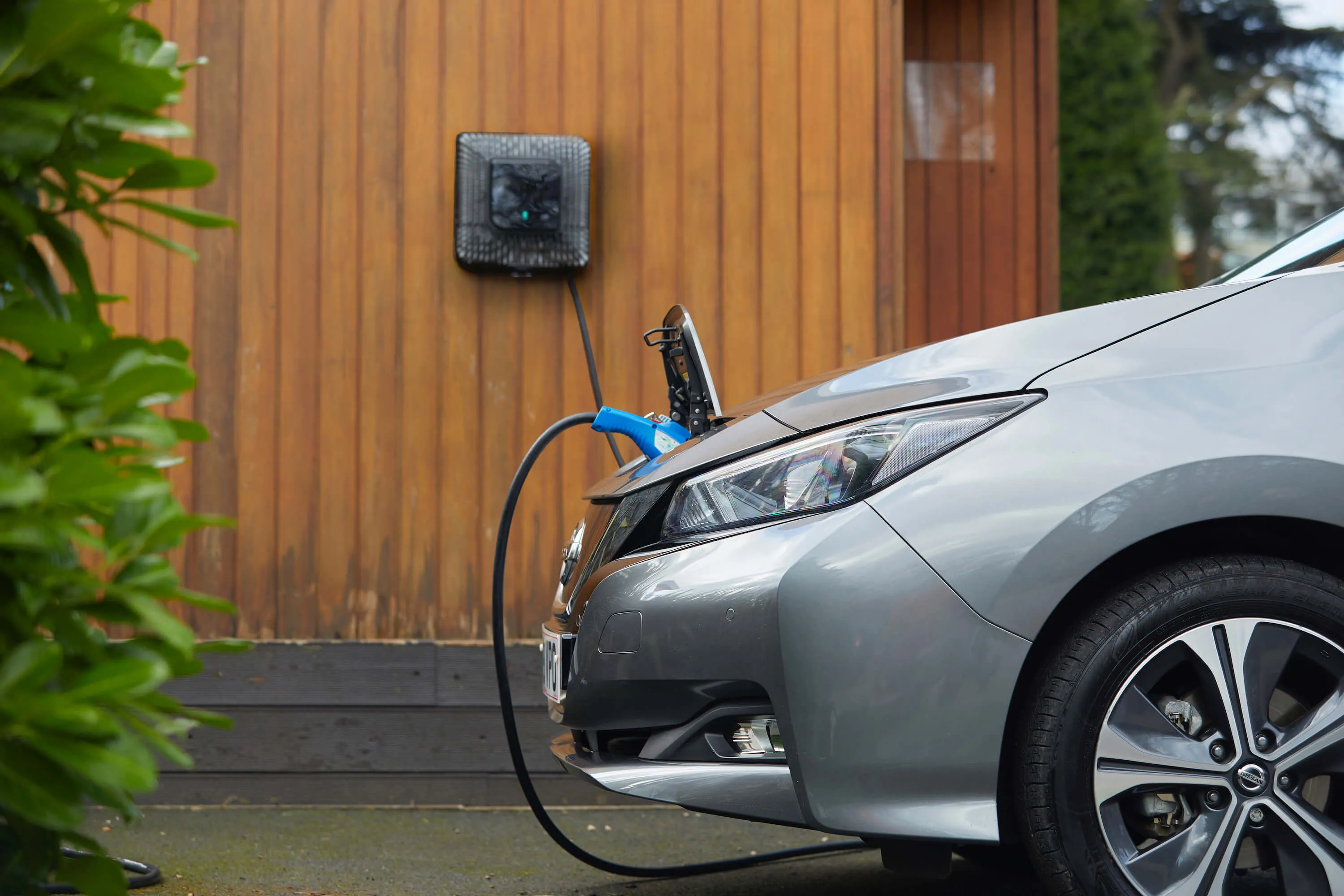The demand for plug-in vehicles (PIVs) has increased in the UK over the last number of years, says UK Construction Media. According to figures published by the Society of Motor Manufacturers and Traders (SMMT), the number of electric car registrations has increased substantially over the past 12 months. An average of 2,400 electrical vehicles was registered per month in 2015 compared with just 500 at the beginning of 2014.
It is estimated that the total number of electrical vehicles on the UK roads total
January 11, 2016
Read time: 4 mins
The demand for plug-in vehicles (PIVs) has increased in the UK over the last number of years, says UK Construction Media. According to figures published by the Society of Motor Manufacturers and Traders (SMMT), the number of electric car registrations has increased substantially over the past 12 months. An average of 2,400 electrical vehicles was registered per month in 2015 compared with just 500 at the beginning of 2014.
It is estimated that the total number of electrical vehicles on the UK roads totals 40,000.
There are numerous advantages associated with the use of plug-in vehicles. Running a plug-in electric vehicle (PIV) could see US$1,500 per year saved on a 40 mile commute in comparison with a conventional 2014 Ford Focus.
The financial benefits also include paying no fuel tax; being exempt from vehicle excise duty and the congestion charge, plus qualifying for lower company car tax.
In terms of environmental advantages, a fully electric vehicle will produce 30 per cent less CO2 driving a single mile than that of traditional petrol engine vehicle.
According to UK Construction Media, there are a number of common misconceptions about PIVs that may prevent people from exploring the possibility of purchasing one of these vehicles, such as the belief that plug-in vehicles are slow but their instant torque gives them a quick rate of acceleration.
Another concern is that a plug-in vehicle wouldn’t be able to travel as far as needed but the average UK daily mileage is only 25 miles. In fact, PIVs are not restricted to a perception of smaller cars but also include larger vehicles such as vans and mini buses.
Charging the vehicle is not the complicated exercise that some people might imagine it to be with the process being simple and quick one.
Last month, the UK Department of Transport announced the extension the plug-in car grant to run until March 2018 and a change to the current banding levels. Initially introduced in 2011 and due to end early this year, the scheme gives buyers up to US$6,500 towards the cost of the greenest models of cars and the extension will see the total funding rise to US$58 million and will boost the growing PIV market.
Mike Hawes, chief executive of the Society of Motor Manufacturers and Traders (SMMT) commented: “The recently agreed global climate change targets underscore the important contribution ultra-low emission vehicles make and will continue to make to reducing carbon emissions.
“Manufacturers are offering increasing numbers of these vehicles – but a consistently applied incentive regime is still needed over the coming years to help consumers adopt these ground-breaking technologies.
“The changes to the regime will need effective management and SMMT looks forward to working with government to ensure the planning needs of manufacturers and consumers, both fleet and private, are met.”
It is hoped that the extension of plug-in car grant will see the number of PIVs on the road treble.
The Transport Minister, Andrew Jones, said: “The UK is a world leader in the uptake of low emission vehicles and the plug-in car grant has been key to that success. Extending the grant in a sustainable way ensures more than 100,000 people will benefit from financial support when purchasing these cheap-to-run and green cars.
“We are determined to keep Britain at the forefront of the technology, increasing our support for plug-in vehicles to £600 million over the next five years to cut emissions, create jobs and support our cutting-edge industries.”
It is estimated that a total of round half a million plug-in cars were sold around the world throughout 2015, with Tesla Model S surpassing Nissan’s Leaf as the most popular model sold.
In the short term (up to 2020), there is sufficient power generation in the UK to support additional demand. However, it is important that looking further ahead to the long term, that utility companies ensure that there is enough power generated to meet the growing numbers of PIVs and that the demand is managed to make sure plug-in vehicles can reach their full cost and carbon potential.
It is estimated that the total number of electrical vehicles on the UK roads totals 40,000.
There are numerous advantages associated with the use of plug-in vehicles. Running a plug-in electric vehicle (PIV) could see US$1,500 per year saved on a 40 mile commute in comparison with a conventional 2014 Ford Focus.
The financial benefits also include paying no fuel tax; being exempt from vehicle excise duty and the congestion charge, plus qualifying for lower company car tax.
In terms of environmental advantages, a fully electric vehicle will produce 30 per cent less CO2 driving a single mile than that of traditional petrol engine vehicle.
According to UK Construction Media, there are a number of common misconceptions about PIVs that may prevent people from exploring the possibility of purchasing one of these vehicles, such as the belief that plug-in vehicles are slow but their instant torque gives them a quick rate of acceleration.
Another concern is that a plug-in vehicle wouldn’t be able to travel as far as needed but the average UK daily mileage is only 25 miles. In fact, PIVs are not restricted to a perception of smaller cars but also include larger vehicles such as vans and mini buses.
Charging the vehicle is not the complicated exercise that some people might imagine it to be with the process being simple and quick one.
Last month, the UK Department of Transport announced the extension the plug-in car grant to run until March 2018 and a change to the current banding levels. Initially introduced in 2011 and due to end early this year, the scheme gives buyers up to US$6,500 towards the cost of the greenest models of cars and the extension will see the total funding rise to US$58 million and will boost the growing PIV market.
Mike Hawes, chief executive of the Society of Motor Manufacturers and Traders (SMMT) commented: “The recently agreed global climate change targets underscore the important contribution ultra-low emission vehicles make and will continue to make to reducing carbon emissions.
“Manufacturers are offering increasing numbers of these vehicles – but a consistently applied incentive regime is still needed over the coming years to help consumers adopt these ground-breaking technologies.
“The changes to the regime will need effective management and SMMT looks forward to working with government to ensure the planning needs of manufacturers and consumers, both fleet and private, are met.”
It is hoped that the extension of plug-in car grant will see the number of PIVs on the road treble.
The Transport Minister, Andrew Jones, said: “The UK is a world leader in the uptake of low emission vehicles and the plug-in car grant has been key to that success. Extending the grant in a sustainable way ensures more than 100,000 people will benefit from financial support when purchasing these cheap-to-run and green cars.
“We are determined to keep Britain at the forefront of the technology, increasing our support for plug-in vehicles to £600 million over the next five years to cut emissions, create jobs and support our cutting-edge industries.”
It is estimated that a total of round half a million plug-in cars were sold around the world throughout 2015, with Tesla Model S surpassing Nissan’s Leaf as the most popular model sold.
In the short term (up to 2020), there is sufficient power generation in the UK to support additional demand. However, it is important that looking further ahead to the long term, that utility companies ensure that there is enough power generated to meet the growing numbers of PIVs and that the demand is managed to make sure plug-in vehicles can reach their full cost and carbon potential.









